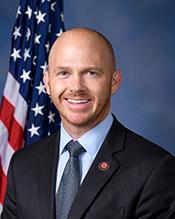0
Securing Systemically Important Critical Infrastructure Act
12/30/2022, 7:18 AM
Summary of Bill HR 5491
The bill outlines a number of provisions to achieve this goal. It requires the Department of Homeland Security to identify and designate systemically important critical infrastructure sectors, such as energy, transportation, and telecommunications. Once these sectors are identified, the bill mandates that the Department of Homeland Security work with relevant stakeholders to develop and implement security measures to protect these critical assets.
Additionally, the bill calls for the establishment of a voluntary information sharing program between the government and private sector entities that own or operate systemically important critical infrastructure. This program is designed to facilitate the exchange of threat information and best practices to enhance the overall security posture of these assets. Furthermore, the bill includes provisions to enhance the cybersecurity of systemically important critical infrastructure. It requires the development of cybersecurity guidelines and best practices for these assets, as well as the establishment of a process for assessing and mitigating cybersecurity risks. Overall, the Securing Systemically Important Critical Infrastructure Act aims to strengthen the security of critical infrastructure in the United States by identifying key sectors, promoting information sharing, and enhancing cybersecurity measures. By doing so, the bill seeks to better protect the nation from potential threats and ensure the continued functioning of vital infrastructure systems.
Congressional Summary of HR 5491
Securing Systemically Important Critical Infrastructure Act
This bill sets out a process to designate elements of critical infrastructure as systemically important. Critical infrastructure refers to the machinery, facilities, and information that enable vital functions of governance, public health, and the economy.
Specifically, the Cybersecurity and Infrastructure Security Agency (CISA) must establish a methodology based on objective criteria to designate critical infrastructure as systemically important. In developing the criteria, CISA must consider, among other factors, the scale of the potential effects of a disruption to the infrastructure on domestic security, the economy, health, or safety.
Using the methodology, CISA must make a preliminary designation and then provide an opportunity for the infrastructure's owner or operator to share additional information. A preliminary designation becomes final after 30 days unless, on the basis of additional information, CISA determines the infrastructure does not meet required criteria.
The bill also requires CISA to
- maintain a list of systemically important critical infrastructure,
- prioritize systemically important critical infrastructure in its programs and activities,
- report on various matters related to the designation process, and
- assess processes for and benefits of enhanced risk management coordination between the federal government and the owners and operators of systemically important critical infrastructure.
Additionally, the Department of Homeland Security must prioritize the security clearance applications of owners and operators of systemically important critical infrastructure.




